No Prune Method of Caring for Fruit Trees
Some gardeners and horticulturists think that it is best to not prune your fruiting trees, shrubs, and brambles and they have good reason for believing this. In this article we will discuss the "no prune method". The benefits, the risks, and why I don't follow this method when caring for my fruit trees.
In nature, things work. For example, you can till up the soil and walk away. Eventually this piece of ground will grow back to its original, native vegetation. You might have a season or two of noxious weeds, but the ground won't stay barren forever. Another example is compost. You can pile up organic matter and it will decompose. Some formulations of organics will decompose faster than others, but it will still happen without human intervention.
If you are enjoying this article and would like to learn more about the care and pruning of fruit trees, Please subscribe here:
Fruit trees are similar to these two examples. If you plant them in a spot where they get plenty of sunlight, water, and nutrients, they will grow, and produce fruit whether you prune them or not. So why wouldn't you do just that? Sure seems like a lot less work than annual pruning, spraying, mulching, fertilizing, wrapping, and covering. Let me give you five reasons why I believe pruning is beneficial to fruit trees.
First, Fruit trees, even semi dwarf ones, will grow taller than the average gardener can reach with a reasonable sized ladder. So what's wrong with a tall tree? The bigger the tree the more fruit, right? Wrong, tall fruit trees, especially those that have not been pruned will have branches high in the canopy that shade out the lower branches. These lower branches will not receive enough sunlight to ripen the fruit that is growing on them. The result is "June drop". June drop is where a tree will abort fruit that it is unable to support to full maturity. June drop can be a result of drought, lack of nutrients, or other stresses, but the most common reason is lack of sunlight in the lower and interior branches. In trees that have been neglected and allowed to grow too tall, you will find that the only fruit that reaches full maturity is growing in the tallest branches or the branches facing the sun. When you look closely, you will find all of the shaded branches void of fruit. If you prune your trees regularly, you will discover that the same amount of fruit will mature on a smaller tree, but the fruit will be shifted to the lower branches where they are easily accessible.
 |
| Click Image to Zoom |
The second reason fruit trees should be pruned regularly is that they will develop disease. Sometimes the shaded branches in the above example will become weak due to lack of energy, making them more susceptible to disease. To be honest, fruit trees will just get diseases because most fruit tree diseases like fruit trees for the same reasons you do. Modern day fruit trees have been bred for tasty fruit. Breeding disease resistance is secondary to taste, texture, size, quantity, and color. After all, why should disease resistance be the primary goal when we can just spray something to fix the problem. If you can't tell I'm being sarcastic. To learn more about the dangers of chemical pesticides, please read this two part series:
Why Pesticides are Approved by the FDA and Why they Should be Avoided
Because disease resistance is secondary in fruit tree breeding, and fruit trees are usually not native to the area where they grow, fruit trees will get diseases. In addition, pesticides kill off beneficial insects, birds, reptiles, and fish, so there are more diseases today than ever before. Improper pruning does expose trees to diseases, and this is the main argument against pruning, but proper pruning can remove disease and prevent it from spreading throughout your tree and/or orchard. Fire blight, for example can be eliminated through pruning, but the pruning must be done correctly for it to be effective. follow this link for more information:
How to Manage Fire Blight in Apples and Pears
Ok, third. Because fruit trees are bred for size and quantity, most modern day fruit trees are unable to support the amount of fruit that they produce. Especially on an "on year", when conditions are right. Pruning is one way to reduce fruit loads and shift it to sturdier branches, closer to the center of your tree. In fruit trees that are left unpruned, the weight of heavy fruit loads is supported by a scaffolding of dead branches in the center of the tree. So why prune? because it is very difficult to navigate this scaffolding of dead wood when it's time to harvest.
Fourth, Aesthetics. I don't believe that fruit trees should be made to produce without taking into account how they look in the landscape. It's a balance between yield and beauty. After all, what makes your fruit trees special is that they can be a plant that keeps on giving. In the winter it's branches contrast nicely in the snow. In the spring you can enjoy the color and fragrance of blossoms. In the summer your tree will provide shade. If you are only interested in the fall harvest, you are missing out on the other three seasons of a well pruned fruit tree.
The last reason I like to keep my fruit trees pruned, in case the other four reasons are not enough, is because pruning is work. I like the fresh air, exercise, and the relationship that I build with nature. Learning about trees, and applying that knowledge in a way that is productive is a very rewarding experience. Nothing tastes better than home grown fruit and vegetables that you had to work for.
Let's review. Pruning shifts fruit loads to a manageable height, and if done properly will reduce diseases in your trees. Regular pruning and thinning will allow your trees to better support the fruit load without broken branches. Fruit trees can also be a beautiful part of you landscape and the work that you put into them can be very rewarding.
Why would you not prune them? Because fruit trees are natural organisms that will produce with or without human intervention. Improper pruning can increase diseases and it's a lot of work that can be allocated elsewhere in the garden. If these reasons speak to you, then maybe the no prune method is right for you. As for me, I will keep pruning my trees year after year and enjoy the fruits of my labor.
If you would like to learn more about the care and pruning of fruit trees, please browse our 100+ fruit tree articles here, join our Backyard Fruit Growers Facebook Group, and take our free Fruit Tree Pruning Course. Also, please subscribe to our Fruit Pruning YouTube Channel.

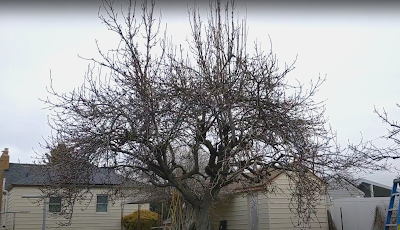
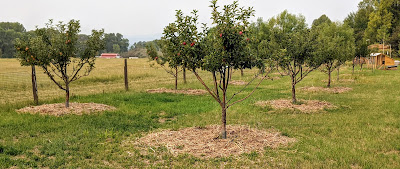
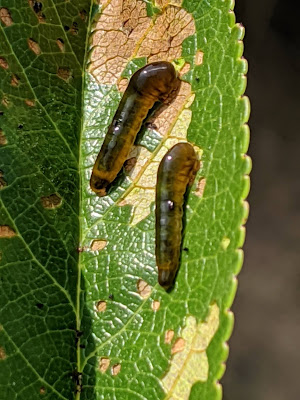
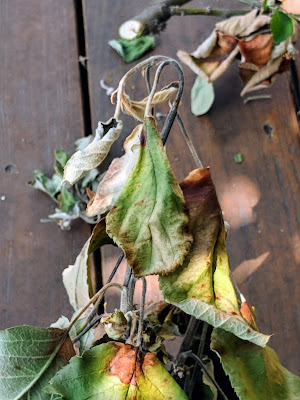
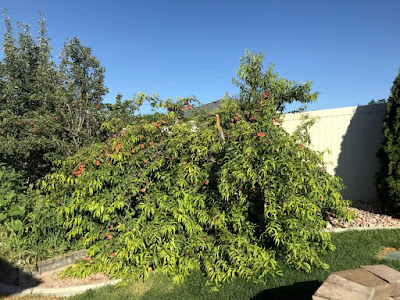

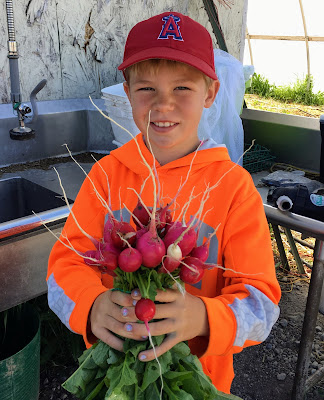


Comments
Post a Comment